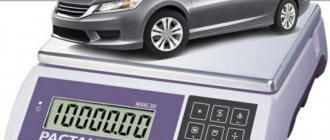Poland is popular among tourists from the CIS, but many come to the country not only to see its beauty and attractions, but also to buy profitably. The legal transportation of goods across the Polish border has restrictions, which both business representatives and simply guests of the country need to be aware of. This is the very case when ignorance does not exempt you from a fine, or even from deportation.
Duty-free import standards: permissible weight and cost of goods for personal use
There is no specific regulatory act allowing customs officers to classify goods as a commercial shipment or for personal use.
Generally accepted criteria that service employees follow when classifying goods as a commercial lot:
- The luggage contains items that are similar in appearance, color and style.
- A citizen cannot give a clear answer on how he plans to use the transported similar product in everyday life.
- A person often crosses the border while transporting the same goods.
- No signs of wear, washing or damage.
- Availability of labels or tags.
- Inconsistency with the time of year.
Goods needed by citizens for personal use should not meet the above criteria.
For citizens crossing the Belarusian border no more than once every 3 months, the new limits allow duty-free transportation of 25 kg of goods for personal use, while their total value should not exceed 500 euros. If border crossings are carried out more often, then the weight limit of 20 kg and the price of 300 euros should be adhered to.
Goods that do not exceed the norm for import into Belarus from Poland are transported through the green corridor.
The listed limits do not include alcohol, indivisible goods and tobacco. Restrictions do not apply to goods transported by air; they are valid only when crossing land and sea borders. By plane, 50 kg of luggage worth no more than 10,000 euros is allowed into the country. Flight frequency is not taken into account.
Excessive imports are subject to a 30% duty, calculated from the commodity value. The nuance is that if the amount received is less than 4 euros per 1 kg, then 4 euros per 1 extra kg are taken into account.
Polish customs regulations
Polish rules for transporting goods for CIS countries are stricter than for EU countries. Personal belongings of tourists receive the status of “temporarily imported” and are not subject to customs duties if their total value:
- no more than €150 – for children under 15 years old;
- no more than €300 – for everyone older;
- no more than €430 – if you fly by plane or travel by water.
According to EU rules, you cannot transport:
- Meat, sausage, lard - more than what you will need on the road.
- Milk, cheese, cottage cheese - also only for one meal.
- Canned food and fish roe. Only baby food or medical canned food weighing up to 2 kg is allowed.
Other problematic goods: weapons, drugs, some medical substances, wild animals, potted plants and cultural objects. They require permission.
You can transport across the border up to 5 kg of vegetables or fruits, as well as 20 kg of fish if it is gutted. You can transport your phone, tablet, camera and laptop – printed. If the purchased goods are exported from the EU, then many stores return money for VAT within 10 months - to do this, you need to come to the same store with a receipt stamped by customs officers. The service is called TAX FREE.
There are also serious restrictions on the number of cigarettes and alcohol, and they are stricter for those traveling by land.
Food import standards
The rules for importing goods into Belarus from Poland provide for the possibility of transporting 5 kg of food across the border without paying duty. Some categories of goods have their own import restrictions, for example, fish caviar (sturgeon) is allowed in the amount of 250 g.
If food products are classified as regulated products (fruits, vegetables, berries, nuts, herbs), then the import of more than 5 kg requires a phytosanitary certificate.
Customs regulations in Belarus prohibit the import of pork into the country from Poland. This applies to live and frozen products, as well as any products containing pork (sausages, sausages, semi-finished products, lard, smoked meats).
In a 5 kg permissible basket, all goods must be in original packaging. Border guards have requirements for product labeling; it must contain information about the composition, date and place of manufacture.
How to import goods from Poland to Ukraine
Ukraine restricts the import of products and goods from EU countries in few ways. Drugs, explosive or toxic substances, propaganda of war, violence, racism (books, brochures, etc.) and products without a certificate are prohibited.
It is allowed not to pay duty on the import of goods up to €500, at airports - up to €1000. But from January 1, 2021, restrictions also came into force:
- you need to be absent from Ukraine for 24 hours (24 hours);
- You can only enter Ukraine from Poland once in three days (72 hours).
If one of these conditions is not met, then goods not heavier than 50 kg and worth up to 50 euros can be transported without taxation. However, you don’t have to follow these rules and simply pay value added tax (VAT). It is also worth keeping receipts from the store in order to clarify the cost of transported goods for the Customs Service of Ukraine.
Personal belongings may include 2 laptops, 2 phones, 3 flash drives, a camera - but unpacked.
Additionally, products are taken into account: the “green corridor” at checkpoints is given to food for personal consumption, but in the amount of no more than €200. The norm is 1 package with a total weight of up to 2 kg, and indivisible products, such as smoked chicken, sausage, cans with lids rolled up - only 1 piece. In other cases, products are also subject to declaration.
Number of items allowed per trip
If crossing the border is carried out no more than once a month, then you can transport 5 items of goods in the amount of 3 pieces each. For persons crossing the cordon more than 2 times a month, it is permissible to transport 3 items of 3 pieces each through the checkpoint.
Customs acts do not provide for rules for classifying goods as a commercial consignment. If a service employee has questions about the goods being transported, he will request oral or written explanations from the person crossing the border. For example, a citizen transports 7 pairs of shoes. He presents the customs officer with a passport with a marriage stamp and 5 children listed.
Oral explanations from a person about purchasing shoes for family members will persuade the customs officer to recognize the goods as necessary for personal needs. This is confirmed by the information in the passport, according to which the owner’s family consists of 7 people.
By presenting a technical passport for a 3-room apartment, you can import 6 lamps into the country, explaining that it is planned to install 2 pieces in each room.
A person who tries to introduce a commercial shipment under the guise of goods for his own needs will be subject to one of the punitive sanctions:
- fine from 30 to 50% of the total cost of the goods;
- confiscation of goods (without paying a fine);
- detention to establish the circumstances.
Differences in standards for air and land border crossings
There are differences in standards depending on the method of movement:
- by land (by bus, car, train);
- by air and sea;
So, when traveling by air (as well as when traveling by sea), some standards increase slightly .
As a rule, this applies to personal items, cigarettes, gifts. We will look at specific numbers in the relevant sections.
Please note that
all the rules discussed apply to entry into Poland from non-EU member states . When crossing the border of the Republic of Poland from the countries of the Union, the standards are much higher.
Indivisible goods: norms for duty-free import of one dimensional product
Signs of an indivisible product:
- weight more than 35 kg (including packaging);
- inability to perform its function in the event of disassembly.
The rules for importing goods into Belarus from Poland without paying duty do not provide for the possibility of transporting large-sized goods; there is no alternative. The legislation provides for payment of 30% of the cost of one item. If the interest rate is less than 4 euros per 1 kg, then 4 euros are taken into account and multiplied by the number of kg.
Large goods weighing up to 35 kg that do not fall into the indivisible category are subject to duty. From 35 kg, the permissible 25 or 20 are subtracted (depending on the frequency of travel), the resulting difference is multiplied by 30%. If the duty amount is less than 4 euros per 1 kg, then 4 euros are taken into account and multiplied by the excess weight.
There is a list of large-sized goods (with a warranty period of more than a year), the import of which is allowed for 1 item once every 3 years:
- gas stove;
- washing machine;
- kitchen hood;
- baby stroller;
- toilet;
- TV;
- computer.
A set of tires is allowed to be imported once every 2 years. When crossing the checkpoint, the employee will require a document confirming ownership of the car. A set is defined as 4 tires, which must come with rims.
Carrying luggage across the Polish border: what is prohibited and what is allowed?
Today Poland is one of the most popular countries for emigration. Poland is also on the route of tourists from Russia, Ukraine, Belarus, and Lithuania traveling by road to other European countries. Therefore, everyone who will be traveling towards or leaving Poland needs to know about the customs rules for transporting personal luggage.
The Customs Service has compiled a list of permitted and prohibited items with which you can enter or leave the country. Those who travel by car or bus and intend to temporarily stay in Poland can import personal items and not pay customs duties if their total amount is up to 300 euros . If the amount of such things is greater, this must be reported verbally and tax must be paid. The import and export of funds equal to 10,000 euros or more must be carried out through declaration - they must be certified in writing in the declaration in the “red corridor”.
What are the rules for transporting luggage across the Polish border?
What cannot be imported to Poland?
The import of food products of animal origin (meat and dairy products) into the EU is very strictly regulated. Protein food products cannot be imported into Poland, which is associated with the spread of diseases in animals. No amount of edible meat and offal, dairy products (including pasta, baked goods, processed vegetables if they contain meat or milk) may be introduced into the EU without veterinary border inspection:
- meat and its derivatives;
- dairy products;
- cheese products;
- canned food;
- milk chocolate;
- caviar (except for sturgeon caviar in a volume of no more than 125 grams in a closed jar).
Import restrictions also apply to:
- firearms and bladed weapons,
- psychotropic substances without a medical certificate for their use,
- drugs,
- explosives,
- radioactive elements,
- poisons
What and how much can you import to Poland?
According to customs regulations, the number of things imported into Poland may vary depending on the method of movement of passengers:
- by air or sea transport,
- by road, rail or other means.
Personal items.
You can cross the Polish border with bags weighing a total of 50 kilograms per passenger. However, there are restrictions on the import of goods from Poland for Belarusians: if you travel more often than once every 90 days (for example, shopping), then the maximum weight of personal luggage can only reach 20 kilograms worth up to 300 euros.
You can take luggage with you to Poland that in some respects exceeds the established standards, but you must declare it in advance and pay customs duty for it. Items taken with you for personal use become “temporarily imported”, so you will have to leave with them.
Goods contained in the personal luggage of passengers arriving from third countries (e.g. Russia) are exempt from import duties, provided that the imported goods are not of a commercial nature and their total value does not exceed the amount expressed in Polish zlotys (PLN ), equivalent to:
- 430 euros - for travelers by air and sea transport;
- 300 euros - for other travelers.
The non-commercial imports mentioned above meet the following conditions:
- happens sometimes;
- it only covers goods for the travelers' or their families' own use, or goods for gift giving.
The above amounts do not include, respectively:
- the cost of personal luggage (for example, used clothing, shoes, cosmetics, camera, video camera, laptop, mobile phone) imported temporarily or imported after its temporary export;
- the cost of medicines necessary to meet the personal needs of the traveler (in quantities not exceeding five smallest packages);
- fuel in a standard tank of any car and fuel in a portable container, the amount of which does not exceed 10 liters;
- and the value of tobacco products, tobacco products and alcoholic beverages imported according to the standards specified below.
Tobacco products
Transportation of cigarettes is only possible for passengers over 17 years of age .
If a passenger transports tobacco products by air or water transport, this can be done to the following extent (only one of several options):
- cigarettes - 200 pieces or
- cigars (cigars weighing no more than 3 g / piece) - 100 pieces or
- cigars - 50 pieces or
- tobacco for smoking - 250 g;
If a passenger transports tobacco products by another means of transport, then they can be in the following quantities:
- cigarettes - 40 pieces or
- cigars (cigars weighing no more than 3 g / piece) - 20 pieces or
- cigars - 10 pieces or
- tobacco for smoking - 50 g.
Thus, it is possible to transport more tobacco products if you cross the border by plane or by ship. If you travel by car, bus or train, you can take a maximum of 2 packs of cigarettes.
Alcohol
Transporting alcohol across the Polish border is also only possible if the passenger is 17 years old. Moreover, when transported by water or air transport, this can be done with limitations in volume:
- 1 liter for alcoholic drinks with a total strength of 22% or
- 1 liter of ethyl alcohol (80%) or
- 2 liters of alcohol with an alcohol content below 22%,
and further:
- 4 liters of non-sparkling wines and
- 16 liters of beer.
For example: the maximum you can import into Poland is 0.5 liters of vodka and 1 liter of liquor up to 22%, plus 4 liters of still wine and 16 liters of beer.
Alcoholic beverages, if they are imported by a passenger over 17 years of age who resides in a border zone or works in a border zone or is a member of the crew of vehicles used for travel from the territory of a third country to the territory of the EU:
- drinks stronger than 22%, or undenatured ethyl alcohol with an alcohol content of 80% or more - 0.5 liters or alcoholic drinks not stronger than 22% - 0.5 liters, and
- still wines - 0.5 liters, and beer - 2 liters.
Jewelry and money
It is allowed to carry jewelry with a total weight of up to 50 grams per passenger.
With money, the situation is a little different: without declaring, you can take with you a maximum amount in any currency up to 10,000 euros. Also, without declaring, it is possible to take as much money as corresponds to the minimum established for the specified purpose of departure.
If a person enters or leaves the EU and carries “cash” valued at €10,000 or more (or the equivalent in another currency), he must report in writing and, upon request, present such “cash” to the competent authorities.
It is also necessary to declare:
- transferable bearer securities, including traveler's checks, bills of exchange;
- banknotes and coins (in Polish and foreign currency) that are not in circulation as a means of payment, but are subject to official exchange for such measure;
- gold and platinum in raw form, in bullion, in coins issued after 1850, and in semi-finished products, excluding those used in dental technology.
Food
As for food products, there are also special transportation conditions for them, which are presented in the table. Among non-alcoholic drinks you can take coffee (up to 500 grams) and tea (up to 100 grams).
Food Vegetables (except potatoes) Fruits Fish, shrimp, mussels, oysters Caviar
Maximum quantity (in kg) 5 5 20 0,125
Of course, there are cases when a passenger needs dietary food (for example, based on fructose) - then you need to prepare a medical certificate in advance stating that you need to take such products and they can be taken in an amount of up to two kilograms. It is also permissible to import up to 2 kg of total weight of original powdered milk, baby food and special food products required for medical reasons, if these products do not require refrigeration before opening, are packaged brands intended for direct sale to the end consumer and the packaging is not damaged , unless its contents are used.
For products intended for animal feeding, only special animal feed required for medical reasons is allowed, provided that the quantity of food imported does not exceed 2 kg, the imported goods do not require refrigeration before opening, the products are packaged company products intended for direct sales to the end consumer and their packaging is not affected unless its contents are currently in use.
All animal products that do not meet the standards are confiscated for destruction and stored in special containers at the border.
Medicines and bioactive supplements
Non-strong medicines, in quantities intended for personal use, can be transported into Poland. As for strong medications (also for personal use), you can only carry them with a corresponding certificate from a doctor (indicating the name of the hospital, full name of the doctor, diagnosis and list of medications). If such a certificate is missing, then the import of medications containing psychotropic and narcotic substances is prohibited.
A traveler arriving in Poland from abroad may only take with him medicines for his own use in quantities necessary for the duration of the trip and stay abroad. For some medications, such as injectable insulin, you must bring with you an appropriate document issued by the attending physician, which, with his signature, confirms the traveler's illness, the medications he is taking, and the need for the use of syringes, an applicator or other medical equipment. Ideally, this document should be translated into the language of the country where the traveler is going.
Sending “medical products” abroad and to Poland in person-to-person mail is prohibited.
Weapon
Polish legislation strictly regulates the rules for transporting different types of weapons. Firearms and bladed weapons cannot be taken with you. However, the restrictions do not apply if there is appropriate permission from the government agency and a declaration, and only for the following types of weapons:
- sports;
- pneumatic;
- hunting;
- cartridges (up to 100 pieces);
- gas cartridge;
- decorative weapons (daggers, knives, etc.).
Without the appropriate documents, you can only be allowed through the border with a kitchen knife (it does not fall under the category of edged weapons), but, as practice shows, this does not always work.
8.Plants and animals
You have the right to take up to five pets with you to Poland at once, but only if they have:
- certificates of all vaccinations, including against rabies;
- an international certificate indicating that they are healthy, or a passport issued by an authorized veterinarian;
- microchip with an electronic identifier (except for those animals that were marked with a tattoo up to r).
You cannot bring live plants with you, but you can take up to 5 kg of fresh fruit, 50 cut flowers, a felled whole Christmas tree or up to 5 branches of a coniferous plant.
Fuel
You can bring fuel (gasoline, diesel) into Poland in a car tank and a small amount in a tank. Without duties and taxes in quantities:
- all fuel included in the fuel tank of the vehicle, no more than 200 liters in accordance with VAT rules;
- fuel in portable tanks (canisters) - no more than 10 liters. In the case of buses, the standard is 200 liters. In trucks that can carry fuel, the standard is 600 liters.
Other
You can also import other goods with a total weight of up to 50 kg and a cost of up to 300 euros per passenger: furniture, auto parts and fuel, electrical and hand tools.
If you import more items than allowed, you must declare them in writing and pay a customs duty, which depends on the type and value of the goods.
To transport high-value art objects across the border, you should also take care of acquiring the necessary documents and licenses.
What can and cannot be exported from Poland?
Without paying taxes, you can export from Poland all goods and things that are intended for personal use, that is, they must be in reasonable quantities.
You also have the right to export “temporarily imported things” from Poland - those that you brought, and in the same quantity, without paying duty. But you will have to pay tax if you want to export the purchased equipment.
Despite the fact that you cannot take plants (as well as seedlings and seeds) with you to Poland, you can export them from there within reasonable limits without a commercial purpose. But in this case, you need to obtain a phytosanitary certificate for the plant.
Step-by-step instructions on passing Polish customs can be viewed on the official website:
Tobacco products
Volume of tobacco products allowed for duty-free import:
| Cigarettes/cigars | 250 pcs/50 cigars |
| Pure tobacco | 250 g |
| Cigarettes + cigars + tobacco | No more than 250 g |
The above standards are established for 1 citizen who has reached the age of majority. Excessive import of tobacco into the country is prohibited.
Former USSR
| A country | Threshold for duty-free import | VAT rate | Additionally |
| Azerbaijan | 1000 dollars (31 kilos) | 18% | No more than one parcel per recipient per day. There are no other restrictions on the number or weight of parcels. |
| Georgia | 300 lari ($125) and weighing up to 30 kilos. | 18% | If the duty-free limit is exceeded, the buyer is required to pay VAT, as well as, in some cases, customs duty of 12%. |
| Moldova | 200 euros (30 kilos) | 20% | Maximum of one parcel per recipient per day. |
| Ukraine | 100 euros (31 kilos) | 20% | Parcels costing 100-150 euros are subject to VAT; for parcels over 150 euros, an additional 10% duty is charged. |
Money, jewelry
The rules for importing goods into Belarus from Poland provide not only for the transportation procedure and the permissible quantity (in terms of volume and monetary equivalent) of goods, but also money and jewelry. You can take an unlimited amount of money with you into the country.
Any country's currency is accepted. The entire amount in dollar equivalent should not exceed 10,000. In this case, filling out a declaration is not required. Import of more than 10,000 requires registration of a document. Restrictions apply to cash.
Non-cash funds located on bank cards are not of interest to customs officers.
Duty-free transportation of precious metals and stones across the border is allowed if the value of the jewelry is less than 1,500 euros (by land transport). For those traveling by air, this amount is increased to 10,000 euros.
Citizens are not prohibited from exceeding the established limit for transporting jewelry, in case of mandatory payment of state duty. Excesses are allowed up to 650,000 rubles. and 200 kg. The excess tax is 30% of the cost or 4 euros per 1 kg, if in percentage terms the duty is less than 4 euros per 1 kg.
Don’t miss the most popular article in the section: What to see in Belarus - attractions and interesting places.
Cosmetics
Polish cosmetics are inexpensive and high quality. Poland ranks first in Europe in terms of the number of cosmetic factories. Skincare cosmetics from Poland are great for Russian women - after all, we have similar climatic conditions. Many cosmetic brands, including professional cosmetics, are familiar to Russian women and are successfully sold in our country. But there are local brands that are not represented (or not widely represented) in Russia, but are worthy of attention.
What cosmetics to buy in Poland:
- "Ziaja" . Perhaps this is the most famous Polish cosmetics. Ziaja produces skin care cosmetics for women. Among the products, tourists highlight the “Kozie młeko” line: creams for the face, hands and body based on goat milk. The average cost of products from “Ziaja” is 1.5–3 euros. Products from the Ziaja Pro series are more expensive because they do not contain parabens and silicone.
- Wibo . The brand's brightest and most popular product is called “Unicorn tears”. This is a serum with extracts of three berries, which can be used as a makeup base. Among the company's other products are decorative cosmetics of decent quality. Tourists recommend paying attention to waterproof eyebrow pomades.
- "Baltic Collagen" . The main ingredient in the brand's skincare products is fish collagen. Among the properties of the unique component: rejuvenation, restoration of firmness and elasticity of the skin. Not all products are age-appropriate - fish collagen also helps fight blackheads and refreshes the complexion. The most popular product is “Baltic Collagen Serum”: a moisturizing and skin-smoothing serum. The products include not only facial cosmetics, but also hair sprays and caring body lotions.
- Ava . The cosmetic brand positions itself as professional cosmetics for home use. Serums are the brand's most popular product. Pay attention to the serums: “Koenzym Q10” (with peptides) and “Retinol z witaminami C,E,F” (with retinol).
- "Pani Walewska " Anti-aging cosmetics are named after a Polish aristocrat, whose fans included Napoleon. The brand has 3 main series: gold - for women over 50 years old; blue - to combat deep wrinkles (over 40 years); red - to correct the contour of the face (from 40 years).
- "Bielenda " Polish cosmetics Bielenda specializes in inexpensive skin care cosmetics. The composition contains many natural ingredients, there is a pharmacy series. Tourists are advised to pay attention to masks and serums from Bielenda.
- "Yonelle " Professional cosmetics that have gained fame as one of the best brands in the country. In terms of cost and quality of products, “Yonelle” belongs to the premium segment - the cost of a jar of cream starts from 70 euros.
- "Put&Rub" . Polish natural cosmetics brand “Put&Rub” is an affordable analogue of the British brand “Lush”. Organic cosmetics are represented by an abundance of products: for the face and body, for hair, there is also a children's line.
Photo: © Alexey Panin
Polish decorative cosmetics are represented by several dozen brands. Tourists are advised to pay attention to: “Kobo professional” (eyeshadow palettes are not inferior to professional ones), “My Secret” (highlighters are especially recommended), “Inglot” (prices in Poland are more affordable than in Russian stores), “Pierre Rene”.
Where to buy Polish cosmetics? Inexpensive cosmetics from budget brands and the mid-price segment can be purchased at the Rossmann cosmetics store chain. In shopping centers there are “Inglot” salons, familiar to Russians, where they do free makeup for purchases of 30 euros or more (by appointment). Professional, salon cosmetics - in branded stores and pharmacies.
Animals and plants
Plants of high sanitary risk (quarantine) require a phytosanitary certificate for transportation through the cordon. Without this document, you are allowed to carry no more than 5 kg. Bouquets of flowers in the amount of 3 pieces per person are not counted towards the weight.
Customs regulations for high-risk (phytosanitary) products include:
- berries, fruits, vegetables;
- mushrooms;
- nuts;
- greenery.
An expanded list of goods of plant origin is contained in the EAEU decision No. 318 of June 18, 2010. A citizen can cross the border of Belarus with 2 pets, without any permission or payment of duties.
However, it is required to have an international passport for the animal with a veterinarian’s mark on the clinical examination. The visit to the clinic must take place at least 5 days before the trip. If the animal has not been vaccinated within a year, then vaccinations are required 20 days before departure.
Documents for importing animals to Poland
International veterinary passport - This is the main document of the animal; without it it is impossible to cross the border with the animal. The passport will contain a photo of the four-legged animal and a list of vaccinations. Also, without the presence of the owners, no one will be able to transport them across the border, because... The owner's full name and passport number are imprinted on the passport/certificate. Also, the animal must have a microchip (the rule since 2011 is that all pets are marked with microchips).
Antibody test - An antibody titer certificate is also required, especially for those who travel with an animal from Ukraine. Since Ukraine is on the list of objects with a high degree of infection with the rabies virus, the test must be done 30 days after vaccination against this disease. If you do not have a certificate at the border, problems will arise: from a fine to a long quarantine. Moreover, the owner of the animal will pay for the stay. An animal should be vaccinated against rabies no earlier than 11 months and no later than 1 month. before the departure date.
Health certificate - The certificate is issued no later than a week before the voyage from the official veterinary representative of the country - a certificate of form A1 made 3 days before departure and its subsequent re-registration at customs.
The process of completing all the documents is quite lengthy, so it is better to start it at least 4 months before the departure date. Over the last six months, customs requirements for the transportation of animals have become very strict, so prepare in advance
Moving to Poland with animals: microchipping, vaccinations, documents, rules
For those who have pets, when moving to another country, an additional problem arises - how to transport your cat, dog or other pet across the country...
Medicines
The norms for the import of goods into Belarus from Poland allow you to have with you, when going through customs control, medicines, the need for which is confirmed by medical documents (a doctor’s certificate, a medical book, a prescription). The form requires the presence of details in accordance with the requirements of the Ministry of Health.
Psychotropic medicines and medicines containing narcotic components are subject to mandatory declaration. Their import into the country is allowed in a certain quantity. At the customs checkpoint, the citizen will be required to provide a medical document with information reflecting the need to use these medications and indicating the daily dosage.
The following will be allowed for transportation:
- medications from the psychotropic category in the amount required for 3 days;
- narcotic drugs - up to 90 doses.
There are requirements for medical documentation to reflect information in it only in 2 languages: Russian, Belarusian. Documents translated from other languages require notarization.
Customs rules and regulations
How many things can be transported across the Polish border?
Personal items permitted for import will not be subject to customs duties and will not be subject to insurance if their total value does not exceed:
- 150 euros for persons under fifteen years of age.
- 300 euros for those over fifteen years old.
- 430 euros for air travel.
Such items receive the status of “temporarily imported” and must leave Poland along with their owner.
The situation with exports from Poland is similar, but there is an exception for Belarusians . The legislation of the Republic of Belarus allows citizens who cross the border less than once every 90 days to import goods in the amount of up to 1,500 euros (those who do this more often - the amount is 300 euros).
How many liters of alcohol can you have?
The rules apply to travelers who are over 17 years of age . Before this age, the transport of alcohol is prohibited.
You can import:
- Drinks with a strength of more than 22.3% vol. – 1 liter of vodka per person entering.
- Drinks with a strength of less than 22.3% vol. – up to 2 liters per person. However, this item does not include wine and beer.
- Wine (except sparkling) – up to 4 liters.
- Beer – up to 16 liters.
In cases of import of alcoholic products that fit several items, the customs officer can calculate their average strength, and on this basis make a decision on the quantity allowed for import.
Is it possible to bring homemade wine or moonshine?
In general, it’s possible, but... without the original packaging and label, no one can determine either the composition or the strength. They may take you away for examination at your expense or simply not let you through.
What kind of tobacco products can you use?
The rules for transporting tobacco also apply only to citizens over 17 years of age..
When crossing the border by land, it is allowed to import:
Mostly people transport cigarettes, but remember if you transport more than 2 packs of cigarettes per person, the extra ones may be taken from you. As for hookah lovers, we did not find information prohibiting the import of it.
When crossing the Polish border by plane, the standards increase:
The latter also applies to water transport.
List of what you can eat from food
The following products are prohibited for import into the country:
- milk and products created on its basis;
- meat and all its derivatives, incl. lard, sausage, balyk, etc.;
- canned food – homemade or store-bought;
- chocolate.
These rules apply to the entire EU territory for the entry of third-country citizens and are regulated not by Polish, but by pan-European legislation .
However, there are a number of exceptions that allow import:
- baby food;
- fish and products made from it;
- fresh vegetables and fruits weighing up to 5 kg per person (except for potatoes).
There is also a nuance : ready-to-eat meat products, cut into portions in small quantities (sliced), can be passed across the border.
Simply put, a traveler will not be deported for eating a sandwich with lard or sausage.
There are also restrictions on the transport of caviar (salted, ready-to-eat).
Sturgeon caviar is allowed in quantities of 125 g/person in hermetically sealed packaging. The issue is more complicated with a small amount of home canning . The decision to import it into Poland will be made by a customs officer, subjectively determining whether it is “canned food” or “personal food”. Our advice: it’s better not to take risks and not to take canned meat-based foods with you – stewed meats and the like. Please take vegetables.
Some other products are also allowed for import into Poland. For example, honey or products made from eggs, etc., weighing up to 2 kg.
You can introduce products for special nutrition (diet, etc.) if, firstly, their need is confirmed by a medical certificate, and secondly, the weight does not exceed 2 kg.
Other restrictions for import into Poland:
- coffee – no more than 500 g;
- coffee extract – up to 200 g;
- tea – no more than 100 g;
- tea extract – up to 40 g.
The names and scope of prohibitions/permits may change depending on changes in Polish and European legislation .
For example, in cases where epidemics of domestic animals and birds are detected, additional temporary bans may be introduced. We have also prepared an article for you about how much food costs in supermarkets in Poland. You can find prices in this article.
Is it possible to import medicines and dietary supplements?
Mild tablets in sizes suitable for personal use are allowed for import into Poland! Potent medications (again in personal quantities) can only be imported with an appropriate document from a doctor (indicating the institution, full name of the doctor, patient data, list of medications).
In other cases, drugs containing psychotropic and narcotic substances are strictly prohibited for import .
What can you do from household appliances?
Transporting any type of equipment in the amount of 1 unit per person (without packaging) should not raise any questions - this quantity is allowed. However, all these things must be declared so that when they are exported from Poland there will be no problems with re-paying VAT.
By the way, if the equipment (mobile phone or TV, for example) was actually purchased in Poland, you will have to pay tax, but you should not forget about such a convenient refund tool as Tax Free.
(laptop) into Poland, the customs officer has the right to check it for the presence of unlicensed software and prohibited content . As practice shows, such cases are extremely rare, but still occur.
Pneumatic and other weapons
The transportation of all types of weapons is strictly regulated by Polish and EU legislation . Firearms and ammunition are prohibited for import. However, sports, hunting, pneumatic and gas cartridges (as well as up to 100 rounds of ammunition for them) can be imported with the permission of the relevant government agency and declared in the prescribed manner.
It is prohibited to import edged weapons (knives, etc.) . An exception may be made for decorative designs that are legally recognized as not of cultural or historical value, and, accordingly, have the necessary documentation.
PS You can take an inexpensive travel or kitchen knife with you. As practice shows, they are not subject to edged weapons and can be allowed across the border, but not always.
There are certain difficulties in transporting certain weapon accessories to and from Poland.
In particular, a hunting scope (not double-action, not installed) should not be classified as a weapon, however, as practice shows, there were cases with import-export problems - they required a conclusion from the Ministry of Defense to recognize the scope as non-military.
In most cases, the situation was dealt with and a positive decision was made, but nerves and time were wasted. This should be kept in mind.
How much cash? What can you do with jewelry?
The situation is simplest with the import of jewelry - it is allowed to transport jewelry with a total weight of up to 50 grams per person , even diamonds.
It's a little more difficult with money. This may be cash, account balances, or monetary precious metals. So, how much money is allowed to be transported across the Ukrainian and Polish border? Carrying currency up to 10,000 euros is allowed, but there are two nuances :
- depending on the purpose of entry, the minimum required amount of money may be established;
- You can import more than 10,000 euros, but such amounts must be declared.
Money can be in any currency (dollars, pounds, etc.) - the rule applies to the equivalent of 10,000 euros.
Plants, seedlings, seeds and animals
The importation of animals into Poland is possible if they have the necessary vaccinations, an international health certificate and a microchip with an electronic identifier established by EU laws. You are allowed to import up to five pets at a time.
The import of plants into the country is prohibited ! However, there are a number of exceptions here:
- It is allowed to import up to 50 cut flowers;
- not rooted (felled, cut) coniferous tree;
- up to 5 parts of coniferous wood.
Rare, endangered species of both plants and animals can be imported only with the appropriate permission from CITES (the body that monitors the implementation of the international convention on trade in rare species).
As for the opposite - the export of plants , as well as their seeds and seedlings from Poland (not on a commercial scale), the Polish customs is loyal to this, however, both Ukraine and the countries of the Customs Union require a phytosanitary certificate.
From experience, we can say that his labor costs for registration of non-commercial parties make this process meaningless. But you can buy seeds for yourself and bring them home.
Other goods
The import and export of spare parts, furniture, petrol or power tools and similar goods to Poland is subject to general rules: for an amount not exceeding 300 euros and weighing no more than 50 kg per adult.
As mentioned, air travel adds to the cost, but not all items can be allowed on the plane due to airline regulations.
Household appliances, furniture, fuel and auto parts
Household appliances for your own needs can be introduced into Belarus once every three years. The requirements apply to items of the same type.
This category includes:
- Dishwashing machines, refrigerators, vacuum cleaners, TVs, food processors, washing machines, mixers, microwave ovens and other equipment used by housewives in everyday life.
- Laptops, processors, tablets, game consoles and other electrical goods.
- Electric heaters, heating radiators, air conditioners and plumbing fixtures.
When crossing a checkpoint in a personal vehicle, the car’s tank can be filled completely or partially, at the owner’s discretion.
Fuel in the tank is not subject to declaration and taxation. In addition to this volume, you are allowed to carry a canister of fuel with a capacity not exceeding 10 liters. Auto parts for personal use during transportation are not subject to duty if their weight is not more than 50 kg and their cost is less than 1,500 euros. In this mass, the maximum permissible volume of one product is limited to 35 kg.
Accordingly, when importing one spare part weighing more than 35 kg, it is necessary to draw up a declaration; payment of duty in this case is not provided. The remaining 15 kg of spare parts are transported as usual.
Transportation of furniture is carried out according to the rules applicable to indivisible goods.
Import Features
Mostly cars, chemical products, and metals are imported from Germany.
In 2014, Russia introduced a food embargo against countries that are members of the EU, prohibiting the import of most products from the commodity groups of the Commodity Nomenclature of Foreign Economic Activity 01-24. Therefore, the import of goods in this category is carried out in a minimum volume. You should first familiarize yourself with the list of goods prohibited for import. Chemical products require specific conditions of transportation and storage. It can be toxic, explosive or capable of harming human health and the environment if not handled correctly. Products in this category are stored in specialized warehouses.
The importer must take a particularly responsible approach to the classification of products according to the Commodity Nomenclature of Foreign Economic Activity. It is necessary to carefully study the composition of the product to find out whether the product contains dangerous substances, alcohol or substances that are classified as narcotics. If the chemical contains narcotic components, you need a license to import products from the Ministry of Industry and Trade. The content of narcotic substances can be detected by taking samples.
If the product contains ethyl alcohol, then the cargo is excisable, and the importer must pay excise duty. Usually, customs requires a safety data sheet for products, but sometimes this document does not indicate certain substances, for example, ethyl alcohol. Then the product is tested in the laboratory
Note! Administrative liability is provided for in case of non-payment of excise duty , and the import of narcotic substances without a license faces criminal liability.
The import of complex telecommunications devices equipped with encryption means is carried out only with a notification from the FSB.
Alcohol is pre-labeled with Federal special stamps, which have replaced traditional excise stamps since 2021.
For imported tobacco, the rules for labeling products with excise stamps and control marks apply. The procedure is carried out before customs clearance.
KIZ marking has been introduced for several categories of products, the list of which is constantly expanding. The law requires imported cargo to be marked prior to customs clearance.
Choosing a corridor to cross the border
At some customs checkpoints, a two-corridor system is used. In the EAEU countries, it is used to simplify the work of customs officers and control procedures for citizens crossing the cordon, both at entry and exit.
The idea that the green wing lacks any control and border guards is wrong. The specialist is either present in the corridor area or observes the situation through the camera. All goods crossing the border in luggage or worn by citizens are subject to control.
It is important to understand that a person crossing the border must declare to customs officers about all goods contained in their luggage or carried on themselves.
The methods of informing the service in the green and red corridors are different.
Customs must know whether a citizen has goods of interest to them. It is impossible to check everything; such a process takes a lot of time and effort. The green corridor simplifies the work of the department. Crossing the border through the green zone, stepping beyond the green line, a citizen by his actions verbally declares the absence of goods with him that are subject to inclusion in the declaration. Without performing any actions, without uttering sounds, a person vouches for his lawful act for the fact that he does not transport the declared goods.
At customs checkpoints there are many brochures, stands, and other available information about the rules for crossing the green line. Inspections in the green zone are carried out randomly.
If a service employee is interested in someone and during an inspection he is found to have goods prohibited for free import, then this citizen will be brought to administrative or criminal liability (depending on the severity of the violation).
Even recognition of a violation at the time of detention or when a customs officer appears does not exempt you from liability. Responsibility comes immediately at the next step taken outside the green line. The procedure for crossing the border along the green corridor is one of the forms of declaration - conclusive.
The rules for importing goods into Belarus from Poland provide for the transportation of items through the red zone that are subject to mandatory declaration. This is a product subject to restrictions, prohibitions and duties. A citizen is obliged to provide information about things of this kind in writing in a declaration.
Before the trip
Copies of documents
We recommend that you make copies of your passports, including the visa page, before departure.
Arrival at the airport
Due to frequent difficulties on roads and increased load at airports, we recommend leaving home in advance and arriving at flight check-in at least three hours before departure.
Passport control
To cross the border, you must have the following documents with you: passport, printout of an electronic air ticket, medical insurance policy, voucher for hotel accommodation.
If minor children (under 18 years of age) go on a trip without parents or with one of the parents, then it is necessary to have a notarized permission from the parents, issued in the name of the person accompanying the child (required at passport control when leaving Russia). If a child is traveling with one of the parents, we strongly recommend that you have similar permission from the other parent, as well as an original or notarized copy of the birth certificate.
We remind you that the tour operator is not responsible if the Border Control Service does not release the child abroad due to lack of permission from the parents, or if the tourist’s passport is on the stop list at the request of the Bailiff Service.
customs control
There are two corridors in the airport customs control zone: “red” and “green”. Citizens who declare goods and sums of money in writing go through the “red” one, and those who do not carry anything that needs to be declared go through the “green” one.
Traveler's checks, regardless of the amount, and securities are subject to mandatory written declaration. Precious stones and metals in any form and condition. It is necessary to include in a written declaration items the circulation of which is restricted by law (weapons, drugs, cultural property, etc.).
Export of currency
Currently, the following procedure has been established for the export of cash foreign currency from the Russian Federation:
- when exporting an amount not exceeding 10,000 €, a customs declaration is not required to be submitted to the customs authorities,
- When exporting an amount equal to or exceeding 10,000 €, a written customs declaration (in 2 copies) indicating the amount of exported currency is required to be provided to the customs authorities.
Baggage
Different airlines have different baggage allowances. Therefore, we strongly recommend that you check this information with the carrier company that will be operating your flight before traveling in order to avoid possible problems when checking in for the flight and boarding the plane.
Note
PAC GROUP is not an air carrier. We order and purchase tickets from a number of airlines. Flight delays (due to weather conditions, technical reasons, strikes and force majeure) are rare, however, they can sometimes lead to changes in the program of your stay in Poland. PAC GROUP is not responsible for flight delays or for the safety of your luggage during the flight.
Declaration procedure, passage through the red and green channels
The cost of the transported goods is confirmed by the citizen with invoices, checks or certificates. If documents are missing or customs officers doubt the declared value, then they use proprietary information to make an assessment.
Customs authorities have at their disposal price information reflected in special catalogues. The cost is determined taking into account the quality, country of manufacture, and market reputation.
The declaration procedure can be carried out either by the person himself or by proxy. If the person crossing the border is under 16 years of age, then the declaration must be made by one of the parents. The declaration form and the procedure for filling it out were approved by Decision No. 287 of June 18, 2010. The information is freely available on the website of the customs department of Belarus.
It is possible to fill out the form by hand and on a printing device. Information is entered in Russian or Belarusian. It is allowed to issue a document in English and, with the permission of customs officers, in any other language if the service employees speak it.
Penalties for violating import rules
Exceeding the norms in weight or amount is punishable by a fine, and unauthorized items are confiscated. Moreover, if a piece of meat ordered by relatives can get you off with a fine, then narcotic or explosive substances entail criminal liability and/or deportation with a ban on visiting the country; If a ban is received from Poland, it may apply to the entire European Union.
Illegal transportation has serious consequences, so do not forget about the customs regulations of the countries you visit. Additional information will be provided by the website of the customs service of any of them.
How to calculate the state duty for exceeding the norms for duty-free import of goods
If it was not possible to meet the duty-free standards, the rules provide the following payment options for those who travel outside the country no more than once every 3 months:
| If the weight exceeds the permissible 25 kg norm | 25 kg are subtracted from the total weight and the difference is multiplied by 4 euros. |
| If the cost is more than 500 euros | 500 euros are subtracted from the total cost, and the resulting amount is multiplied by 0.3 (30%) |
In the case of transportation of goods exceeding the cost and weight indicators, calculations are made based on both indicators. The larger result is accepted for payment.
It is possible to import alcohol into Belarus in excess of the prescribed limit only in the amount of 2 liters. The fee for 1 liter is 10 euros.
Decorations
The most popular stone for jewelry in all countries on the Baltic coast is amber. In Polish shops and souvenir shops you can buy both massive amber beads of the “Soviet” type and more minimalist products. Gdańsk is considered the amber center; for the most original products, you should go to the workshops and galleries of the Old Town.
The second most popular stone is coral. In Poland, coral is mainly used to make jewelry, but there are also options set in precious metals. When purchasing, check the country of production - in recent years there has been a lot of jewelry with Chinese coral in Poland.
Not only jewelry and cutlery sets, but also icons are made from silver in Poland. Jewelry products are distinguished by a high price, but they look very aesthetically pleasing.
Amber jewelry store Photo: © Vesnuschka2016
Goods prohibited for import into Belarus
In addition to the ban on the import of tobacco and alcohol in the permissible amount, it is prohibited to transport into the country:
- All types of weapons (civilian, service), cartridges and their parts.
- Flash drives, audio and video cassettes, disks, and other objects of information in electronic form and on paper containing data prohibited in the EAEU.
- Any means used to collect information of an illegal nature.
- Waste classified as “hazardous” and prohibited in the EAEU.
- Substances classified as toxic.
- Narcotic, psychotropic substances, except for the amount prescribed as vital according to the doctor’s indications.
- Human tissues (organs), blood and its components.
How many dollars can foreigners or non-residents bring in?
Any citizen of a foreign power has the right to import the currency of his country in the equivalent of $15 thousand, at the exchange rate of the hryvnia (NBU information), which is in circulation in Ukraine.
However, you must adhere to the established customs requirements:
- Without submitting a written declaration, an amount of 10 thousand € or its equivalent on the day of arrival is allowed to be imported.
- Having a larger amount obliges foreign visitors and non-residents to submit a written declaration, and there is no need to confirm their origin.
- If you need to transport money in the amount of more than 50 thousand €, then you must obtain permission from the National Ukrainian Bank, and the funds must only be in non-cash form (for example, to make a major transaction to purchase real estate).
Please note: excess foreign funds can be transferred to the customs service for safekeeping, or transferred to the personal bank account of a non-resident upon presentation of the details of the financial organization.
If you plan to transit through the territory of Ukraine, you can bring up to $30 thousand or an equivalent amount to the hryvnia on the day of travel, but you must present a visa to another country and transport tickets.
Is it possible to bypass the rules?
Customs terminal employees are citizens like everyone else. They have a family, elderly parents who need to be looked after, cared for and supported. And all this requires money.
Of course, one cannot say unfoundedly that all employees of the Ukrainian border control service are bribe-takers, but many of them do not hesitate if guests offer them a small bribe for importing goods in slightly larger quantities than provided for by the Law. Therefore, they can, as they say, “turn a blind eye” to minor violations and let tourists through without a thorough check.
Features of customs on the border of Ukraine with other countries
Ukraine borders different countries, and the approach of customs and border guards to citizens of these countries varies.
For comparison:
Russia
Based on the decision of the Rada and the decree of the President of the country “On National Security...”, 1,230 citizens from Russia are completely prohibited from entering the country. Among them are prominent cultural figures, political leaders, and many businessmen. For now, the ban is valid for up to 3 years.
But for ordinary people who do not pose a threat to the state, that is, they do not publicly express a negative position about the Ukrainian regime, entry is still open.
Belarus
Although most residents of Belarus do not pose a security threat to Ukraine (the SBU did not include them on the list of unwanted guests), entry must comply with border crossing rules.
For example:
- Be polite and present your items for inspection upon request.
- Prepare entry documents and a declaration in advance if you are importing items in larger quantities that exceed their weight.
There is no need to joke with border guards - this may arouse suspicion and entry will be prohibited. You should behave calmly, without unnecessary emotions and statements.
Poland
The Polish-Ukrainian border is also an external border of the EU, so many people use this option to travel around Europe.
The requirements of the Schengen countries apply here, so the citizen must clearly justify some points:
- Purpose of visiting Poland (or another European country).
- Duration of visiting the country, and you will definitely need to present a reservation for temporary accommodation, return exit tickets, and prove the tourist’s financial support.
- An important condition will be the absence of the guest’s data in the database of unwanted persons (SIS), that is, he should not pose a threat to the social and political system of the EU countries.
- They will also require a valid biometric passport, a Schengen visa (it is not needed for Ukrainians) or another basis for entry.
Moldova
For citizens of the country, the innovations in the rules of customs border crossing with Ukraine are not yet in effect, since no official notification has been received from the Ukrainian side. Therefore, entry is allowed using ordinary foreign passports, but at the border, persons crossing the border will have their right fingerprints taken.
When leaving, they will be checked against the available database data. However, the Interpol database will be checked to determine if the person is wanted.
Romania
The country is part of the Schengen zone, therefore, upon entry, EU rules apply:
- Citizens of other countries require a visa to any EU country with a return date, or a multi-visa. Its absence is often the reason for refusal to enter Romania. Ukrainians do not need it.
- It is also necessary to declare all things that are in the tourist’s luggage. What is in hand luggage does not need to be declared.
- If a Ukrainian has an old-style international passport, then a visa is required.
- If you plan to enter by personal car, then you need to purchase a vignette - a kind of payment for travel on Romanian roads. However, this is not the usual paper receipt, but a virtual document, information about it is contained in the database when crossing the Romanian border.
Although the customs rules of other states are not much different from the rules for crossing the border of Ukraine 2021, in any case you need to know them in order to easily get into a neighboring state.
Article design: Oleg Lozinsky
How many cigarettes can you bring across the Romanian border?
to import duty-free temporarily and for personal use.
photo, audio and video equipment, 1 item of each item, up to 4 liters of wine, up to 1 liter of spirits, up to 200 pcs.
cigarettes
or up to 200 grams of other tobacco products, up to 200 grams of coffee or cocoa for personal use.
Interesting materials:
How do cats behave after surgery? How to knit cats? How to knit cats for the first time? How does valerian affect cats? How to inject medicine from a syringe into a cat? How to give water to a cat? How to give medicine to a cat? How to raise a Scottish Fold kitten? How to raise a kitten so that it doesn't scratch? How to raise a kitten?










